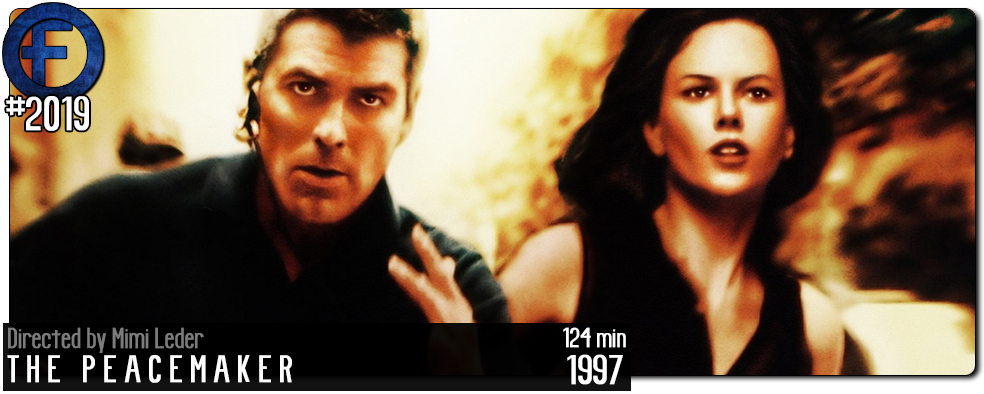Movie Review – Peacemaker, The (1997)
Principal Cast : George Clooney, Nicole Kidman, Marcel Iures, Aleksandr Baluev, Rene Medvesek, Gary Wentz, Randall Batinkoff, Jim Haynie, Alexander Strobele, Holt McCallany, Michael Boatman, Joan Copeland, Carlos Gomez, Armin Mueller-Stahl.
Synopsis: A US Army colonel and a civilian woman supervising him must track down stolen Russian nuclear weapons before they’re used by terrorists.
********
In 1997, then-new mini-major studio DreamWorks, founded by the partnership of Steven Spielberg, Jeffrey Ketzenberg and David Geffen, dropped its debut feature film, The Peacemaker, into cinemas. The studio’s hefty prestige status saw it attract a bevvy of stars and filmmakers, led by Spielberg himself with films such as Amistad and Saving Private Ryan, as well as Gore Verbinski (Mouse Hunt) and Joe Dante (Small Soldiers), and would give birth to a successful animation division off the work achieved by both The Prince of Egypt and Antz. The Peacemaker, directed by Mimi Leder (who would also direct the studio’s big-budget disaster spectacle Deep Impact in 1998), teams a young, ER-popular George Clooney and a white hot Nicole Kidman (her three films prior to this included Batman Forever and To Die For), as a pair of terrorist hunters hoping to thwart a nuclear attack on New York City. The film is about as populist as it can be, carves broad swathes into then-topical geopolitical tensions across the globe, and offers a rousing, breathlessly shouty climax across Midtown Manhattan as a backpack-sized nuclear warhead threatens to destroy half the city.

Deep inside Russia, a nuclear explosion attempts to hide the theft of ten stolen nuclear warheads; Russian General Kodoroff (Aleksandr Baluev) escapes with the remaining nine, one of which he intends to a renegade Serbian government agent, Dusan Gravic (Marcel Iures). The explosion attracts the attention of US officials, including Army Ranger Thomas Devoe (Clooney) and NSA Intelligence head Dr Julia Kelly (Kidman), who track the missing weapons as they are about to enter Iran. They gather information on the buyers from a contact inside Russia, Vertikoff (Armin Mueller-Stahl), leading them to a pursuit through New York City as Gravic uses his diplomatic ties to enter the city without a security check, intending to detonate the last of the nukes at the United Nations.

The striking thing about revisiting The Peacemaker today is just how little has changed geopolitically in the quarter century since it was released. The film’s plot revolves around Russians, nuclear weapons, terrorism and America’s fear of nuclear attack – rather prescient given Russia’s invasion of Ukraine feels all too familiar. The film’s heartbeat, however, is derived from the relatively recent Bosnian War, the horrors of which were front of mind in audiences back in 1997, and the central premise of a disaffected Bosnian Serb seeking retribution from the US over the tragic death of his wife and child in the name of vengeance still strikes an element of knowing fear into people watching what’s going on in Ukraine as I write this.
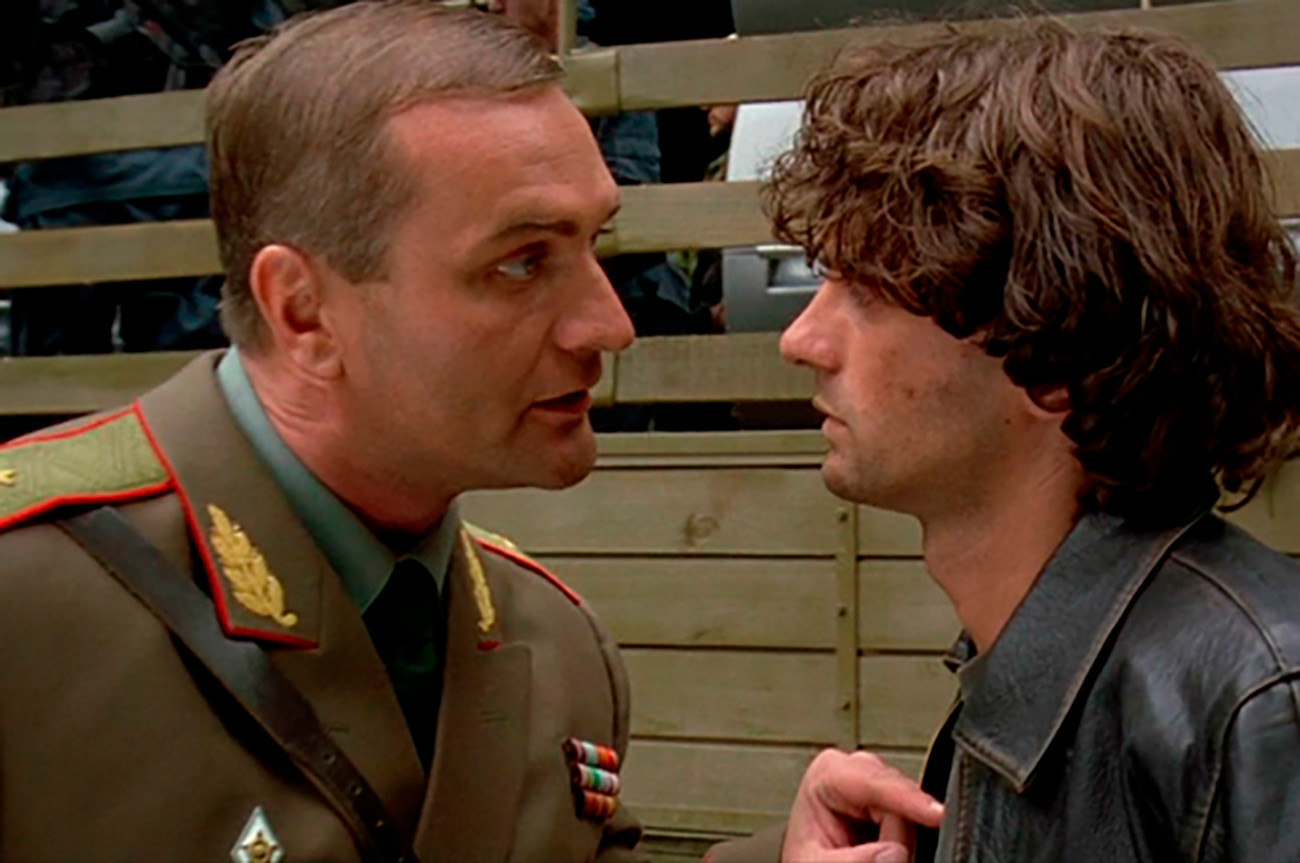
Screenwriter Michael Schiffer (Crimson Tide, The Four Feathers) builds his incredibly convoluted plot using touchstones of the day – evil Russians, evil Eastern Europeans, and Square-jawed American rah-rah superiority – and mixes them all into a silly little potboiler that allows Clooney to flex his action muscles, Kidman to scowl and pout into the camera insistently, and Mimi Leder’s effortful action direction to take full effect. There’s a lot of acronyms and technobabble in The Peacemaker, used as a way of making the characters seem smarter than they are and the audience a lot dumber than they might be – I chuckled a lot whenever a location subtitle appeared on the screen, as I imagined a lot of American audiences frantically nudging the person next to them and asking “is Sarajevo in Mexico?”.
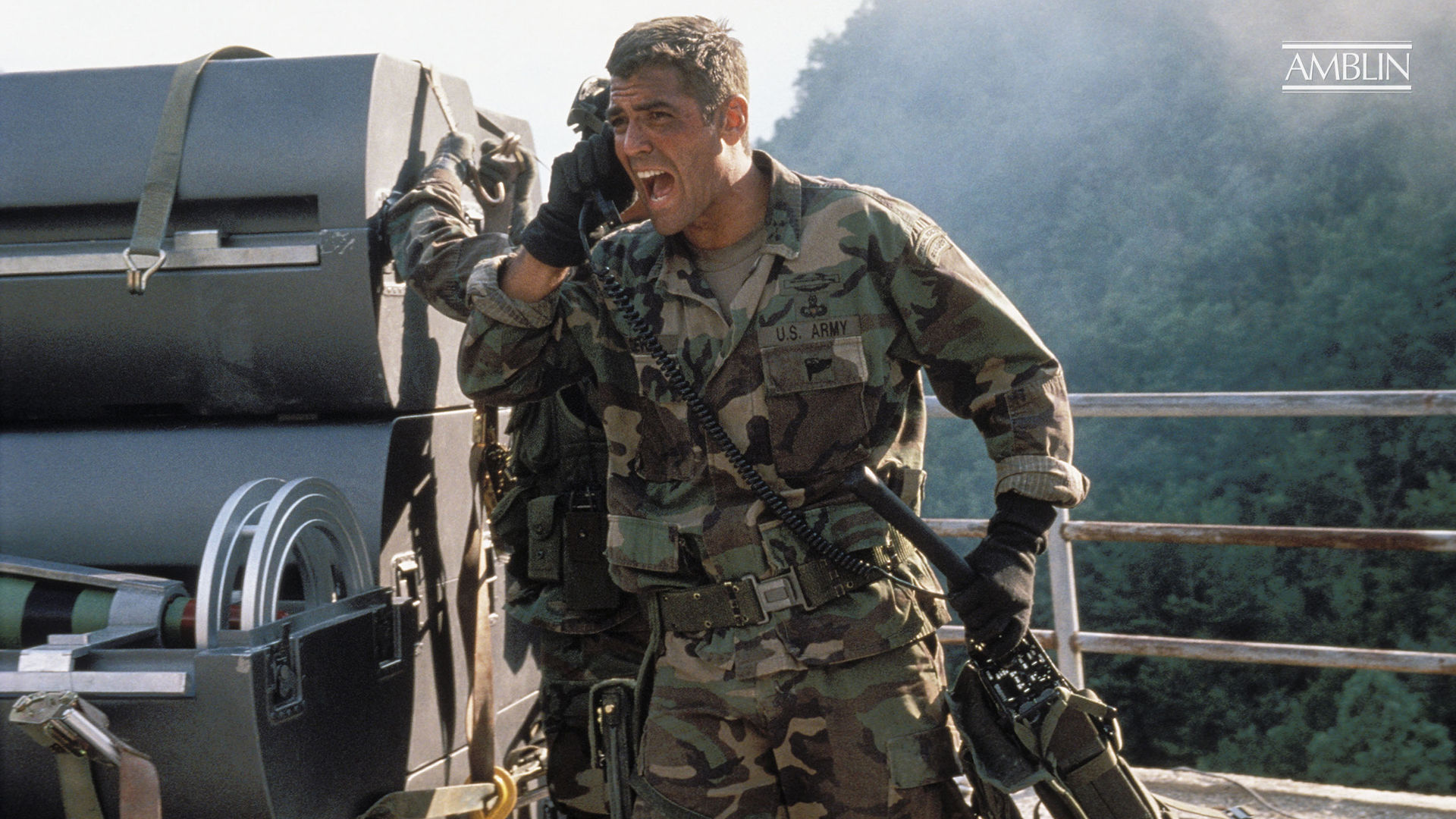
Clooney and Kidman make for an on-paper excellent team to put into the same movie. Clooney’s steamy charisma from his popular television series ER manifests in an even larger way as he contorts that handsome face into a palette of concern and righteously formidable determination, and as Devoe you absolutely believe he would crack open the seventh circle of Hell to achieve his mission. Kidman’s character is the ubiquitous Mrs Exposition of the film, forced to spout lines of incomprehensible geographic, technical and scientific know-how to move both the plot and her relationship with Clooney’s Devoe along, and as competent an actress as Kidman is, she almost succeeds. Sadly, inexplicably, the expected sparks between the pair fails to ignite the screen, with Kidman’s Dr Kelly almost invisible against the charms of her male co-star. The film also spends a lot of time setting up and executing the Russian and Serbian subplots, with Clooney and Kidman not appearing on screen at all until almost twenty minutes into the movie, which probably explains why their relationship as work colleagues feels so clumsily handled.
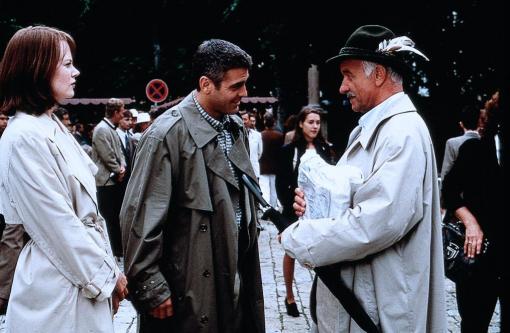
Supporting turns from the likes of Michael Boatman (a known face in the 90’s for his role in popular sitcom Spin City with Michael J Fox) as a Ranger operative, Holt McCallany (Wrath of Man, The Ice Road), and Oscar-nominee Armin Mueller-Stahl (Shine) form the “I know that face” backstop of the film’s Hollywood ensemble, while Romanian actor Marcel Iures (Mission: Impossible) and Russian performer Aleksandr Baluev (Proof of Life, Deep Impact) form critical components of the European side of the film’s storyline. It’s not a film that demands a lot from its actors, although Iures does a commendable job turning his tortured, tragic terrorist character into something the audience can find empathetic, and anything Armin Mueller-Stahl does is always worth watching.
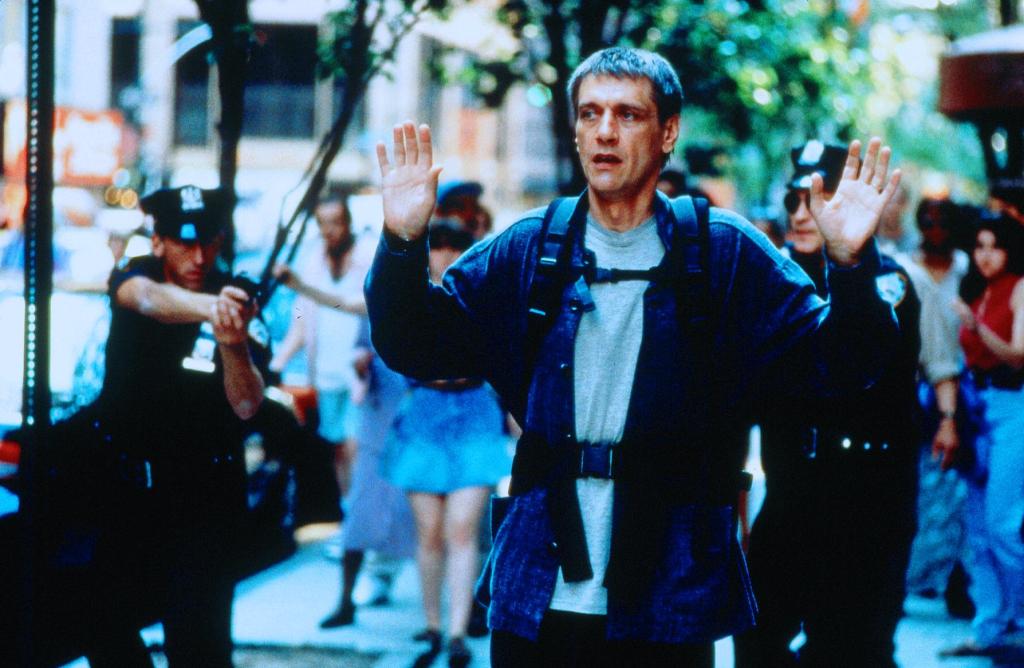
In terms of its technical accomplishments, The Peacemaker’s dynamic camerawork and roughshod editing, together with a distinctly unpolished visual tone, make for energetic yet disappointing viewing. The editing of the action sequences, and there are a few, lack the dynamism and innate synchronicity of more modern fare. A series of vignettes involving a trio of luxury cars driving at speed through Vienna, as well as a tense chase-the-truck-carrying-nukes-through-Russia sequence, not to mention the anus-tightening chase through the busy streets of New York City itself as the ticking clock of nuclear annihilation beckons, might feel fairly compelling but Leder’s direction of them is bruisingly clunky. There’s a real lack of grace to the action here, despite everyone’s best efforts. I mean the film has moments, sure, but overall The Peacemaker lacks solid punches in this regard. Accompanying the raucous on-screen antics is Hans Zimmer’s conspicuously unmemorable score – The Peacemaker has a definitively 90’s-era Zimmer soundtrack, with overblown guitars and pounding percussive work, not all that far removed from similar tricks on Days Of Thunder) – which soars along as best it can in making the film more exciting.
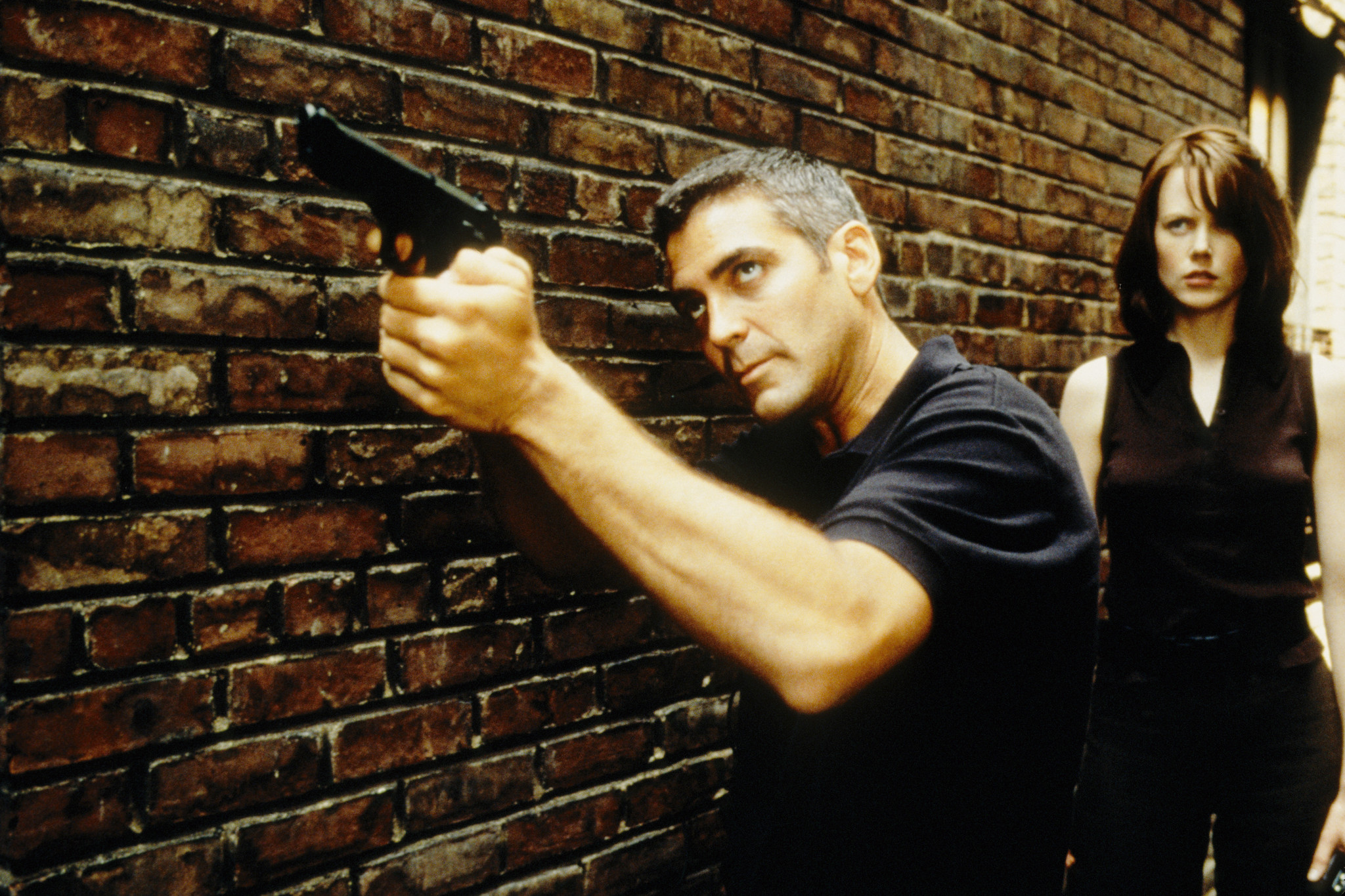
Because The Peacemaker is so politically reflective of the mid-90’s geopolitical climate, it has dated itself quite poorly. Understandably, things like faxes (which makes an appearance in a highly secure US military complex), beepers and old-school personal computers whiplash modern viewers with its technological archaicness, but these can be overlooked as being a product of its time. The fact the film refers to President Clinton as the current Commander In Chief immediately places the film’s age contextually, turning what was then a relatively cheap action thriller into a kind of semi-documentarian time-capsule showcasing values and thinking that might seem problematic to some now. Or not, I guess, depending on your perspective.
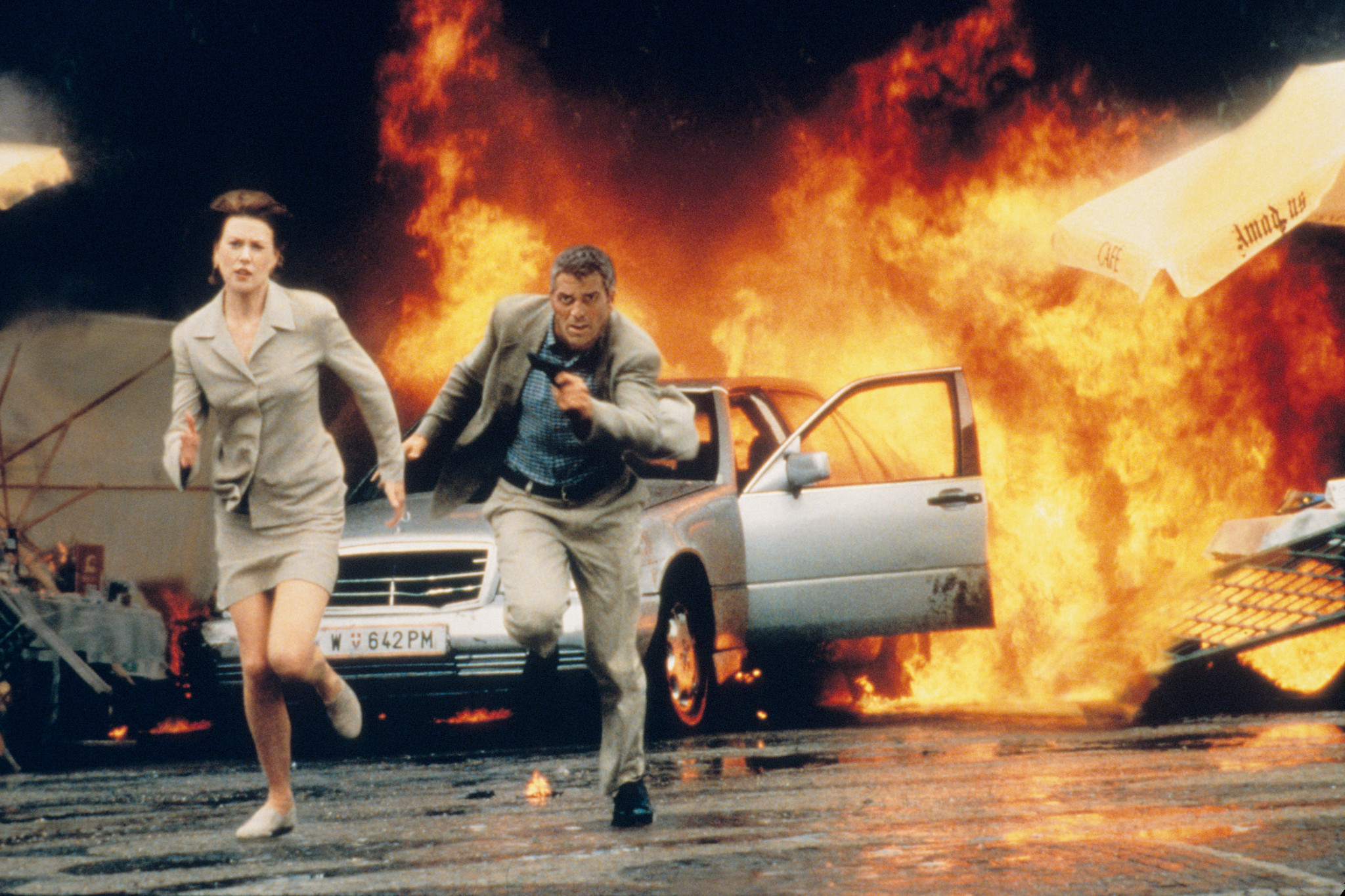
Having only watched The Peacemaker a handful of times in the years since I saw it in cinemas, I think a nostalgic afterglow had settled on this film for me. The Peacemaker isn’t quite as good a film as I remember it being, although not through any issues with performance, character or overall story – I think Leder’s direction here is competent although not quite fully formed for big-screen action, and the boilerplate writing and hackneyed, jingoistic us-vs-them mentality pervading the movie feels a little off these days. If you can wade through that, you should have a good enough time to waste on a rainy afternoon.

